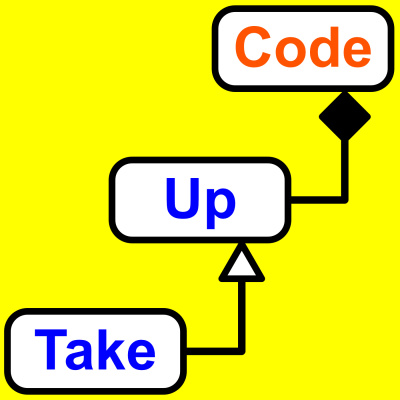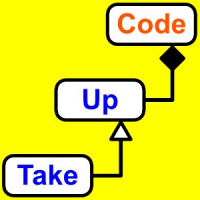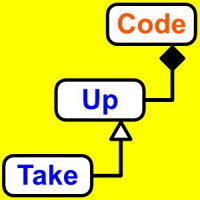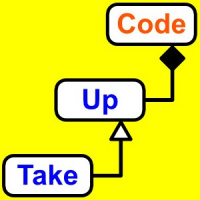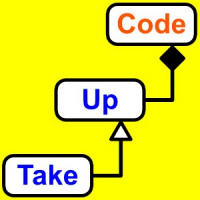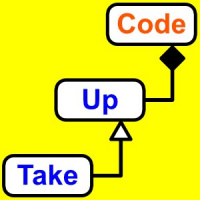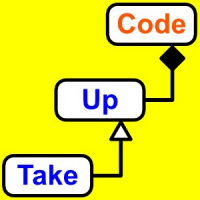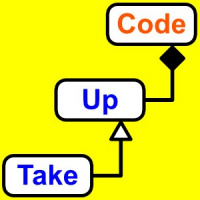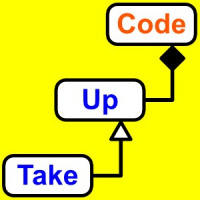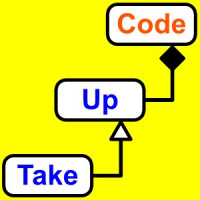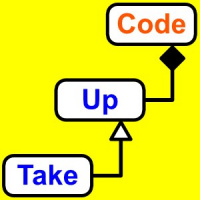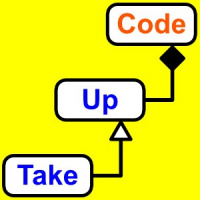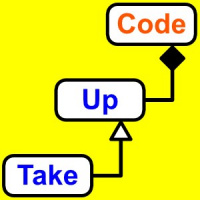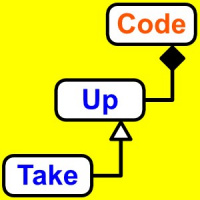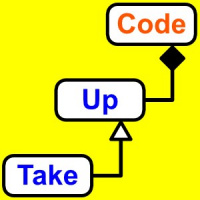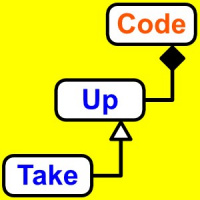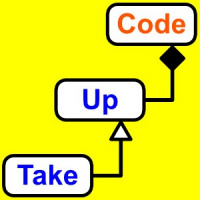Sinopsis
Take Up Code is a podcast that explains computer programming topics through fun and engaging examples that you can relate to. The guided format allows you to gain valuable understanding of topics that will reinforce your studies, allow you to train new skills that you can apply on your job, and change your thinking about what it takes to become a professional programmer. The episodes are as short as possible so you can squeeze them into your daily routine.
Episodios
-
129: Data Types: Function Objects Part 2.
22/06/2016 Duración: 10minFunction objects are simple but do not let that fool you. You can use them in clever solutions.
-
128: Data Types: Function Objects Part 1.
21/06/2016 Duración: 08minFunction objects are simple but do not let that fool you. You can use them in clever solutions.
-
127: Data Types: Smart Pointers Part 2.
20/06/2016 Duración: 12minThe C++ language guarantees that destructors run at specific times even if an exception is thrown. You can use this to make sure that other cleanup work gets done. That is what smart pointers do.
-
-
126: Data Types: Smart Pointers Part 1.
16/06/2016 Duración: 08minThe C++ language guarantees that destructors run at specific times even if an exception is thrown. You can use this to make sure that other cleanup work gets done. That is what smart pointers do.
-
125: Data Types: Streams Part 2.
15/06/2016 Duración: 09minStreams provide a way to read and write potentially unlimited information and working with them is very different than data types representing a single variable.
-
124: Data Types: Streams Part 1.
14/06/2016 Duración: 09minStreams provide a way to read and write potentially unlimited information and working with them is very different than data types representing a single variable.
-
123: Data Types: Tuples.
13/06/2016 Duración: 09minSometimes you need to bundle things together so you can treat them as a single unit. That is what the tuple provides.
-
QA Friday 2016-Jun-10
10/06/2016 Duración: 07minWhen should I use a reference and when should I use a pointer?
-
122: Data Types: DateTimes Part 5 C++.
09/06/2016 Duración: 11minDateTimes in C++ require quite a bit of a learning curve. They are still evolving and nowhere near to being full-featured or friendly to use.
-
121: Data Types: DateTimes Part 4.
08/06/2016 Duración: 11minDates and times are a lot more complicated than we normally realize. This episodes explains durations.
-
120: Data Types: DateTimes Part 3 C#.
07/06/2016 Duración: 10minSo you think you know how to use the DateTime struct in C#? You might be surprised.
-
119: Data Types: DateTimes Part 2.
06/06/2016 Duración: 17minDates and times are a lot more complicated than we normally realize. Having a specific data type to manage all the details is crucial.
-
-
118: Data Types: DateTimes Part 1.
02/06/2016 Duración: 14minDates and times are a lot more complicated than we normally realize. Having a specific data type to manage all the details is crucial.
-
117: Data Types: Decimals.
01/06/2016 Duración: 11minIf you need floating point values but find the accuracy of floats and even doubles to cause problems, then consider using the decimal type.
-
116: Data Types: Strings Part 3.
31/05/2016 Duración: 17minYou need more than a bunch of numbers and logic to write an application. You need text and working with individual characters is not enough either.
-
115: Data Types: Strings Part 2.
30/05/2016 Duración: 15minYou need more than a bunch of numbers and logic to write an application. You need text and working with individual characters is not enough either.
-
QA Friday 2016-May-27
27/05/2016 Duración: 07minIs there any point in learning how to code when I can just use the source code from another app?
-
114: Data Types: Strings Part 1.
26/05/2016 Duración: 16minYou need more than a bunch of numbers and logic to write an application. You need text and working with individual characters is not enough either.
